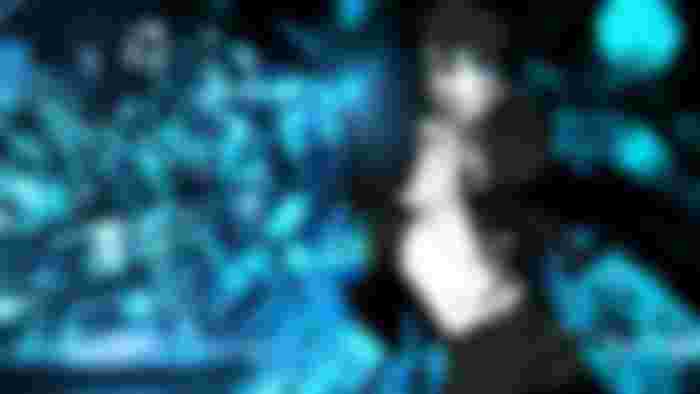Analysis of the anime Psycho-Pass
The main idea of PP is the abolition of the presumption of innocence. The Sibyl system measures a person's level of criminality, and if that level is too high, measures are taken, even if the person has done nothing illegal. The idea is quite interesting, and I'm sure that with the right approach a decent detective story with philosophical overtones could have been squeezed out of it, but Psycho-Pass didn't even try to do that. PP is as safe a product as possible, aimed at a mass audience.
Kogami, the local protagonist, is an incredibly tough guy, a former detective with a hard life (naturally), who got so involved in chasing killers that his Psycho-Pass
darkened and now Kogami himself is considered a potential criminal, and the only job left for such people is to become an enforcer, that is, a catcher of such potentials. We observe Kogami's coolness through the young Akane, who has just taken a job as an inspector at the bureau. Akane is the standard naive anime girl, whose job is to be surprised and awkward.
Through her we are also introduced to the world of the series, which is perhaps the only bright spot. Psycho-Pass has its own aesthetic, everything here revolves around holograms, which looks pretty fresh. In addition to tracking criminals, the Sibyl system also deals with dividing people into professions, as Asimov did, and a few episodes of the first season even emphasize this, but in proportion this theme turns out to be of little importance. The main theme of the series is the struggle between human morality and Sybil's cold calculation. The main villain is predictably not perceived by Sybil as a dangerous element, despite all his atrocities, but for some reason no explanation is given for this phenomenon. If the series were really interested in philosophy, it would certainly try to come up with a reason-some special way of thinking that allows the villain to remain invisible to the system-but it doesn't. He just presents it to us as fact, explaining everything by biology, which is disappointing. Nevertheless, the series tries to constantly remind the viewer of its cleverness, and it boils down to all sorts of name dropping, with characters constantly referring to philosophers unnecessarily.
"Why Kogami is so gloomy????".
"As Nietzsche said, if you look long into the abyss, the abyss will begin to look into you. Kogami looked too long....".

The show also has no detective element, which is strange, because the whole plot revolves around the work of the bureau to catch criminals. There's no detective research, the main character Kogami just pulls the solution out of his head, making young Akane cringe at his awesomeness. The funniest moment, when I firmly knew there was no detective, was the episode in which Akane is brought to a forensics professor. The professor takes one look at the girl and gives out a whole dossier on her: where she's from, who her parents are, and all that. When Akane, following the viewer's wish, asks how the professor figured it all out, he answers something like "there are ways :)))", thus depriving us of the most interesting part: the process of deduction.
For myself, I have divided anime into two types. Anime in which they try to make the characters' interactions look like those of real people, and anime in which the characters behave in a purely "anime-like" way. Psycho-Pass is the second type of anime. The characters here will tell you everything that is on their mind, leaving you no chance to understand anything yourself. The series is full of standard anime "monologues" about a hard fate and a particular view of the world, which makes the characters behave this way and not that way, which they are happy to tell the viewer about. Don't write this off as a flaw; this approach, you might say, is one of the main features of the genre, and without it many anime would surely lose some of its charm. Psycho-Pass, on the other hand, has no charm whatsoever. This is a solid anime of average quality with an interesting idea that can pull the whole series without letting it fall below a certain bar...
Pros: Decent direction, decent action.
Cons: The series makes very little use of the potential of its setting.
The anime is very mediocre: full of anime clichés.
6/10
